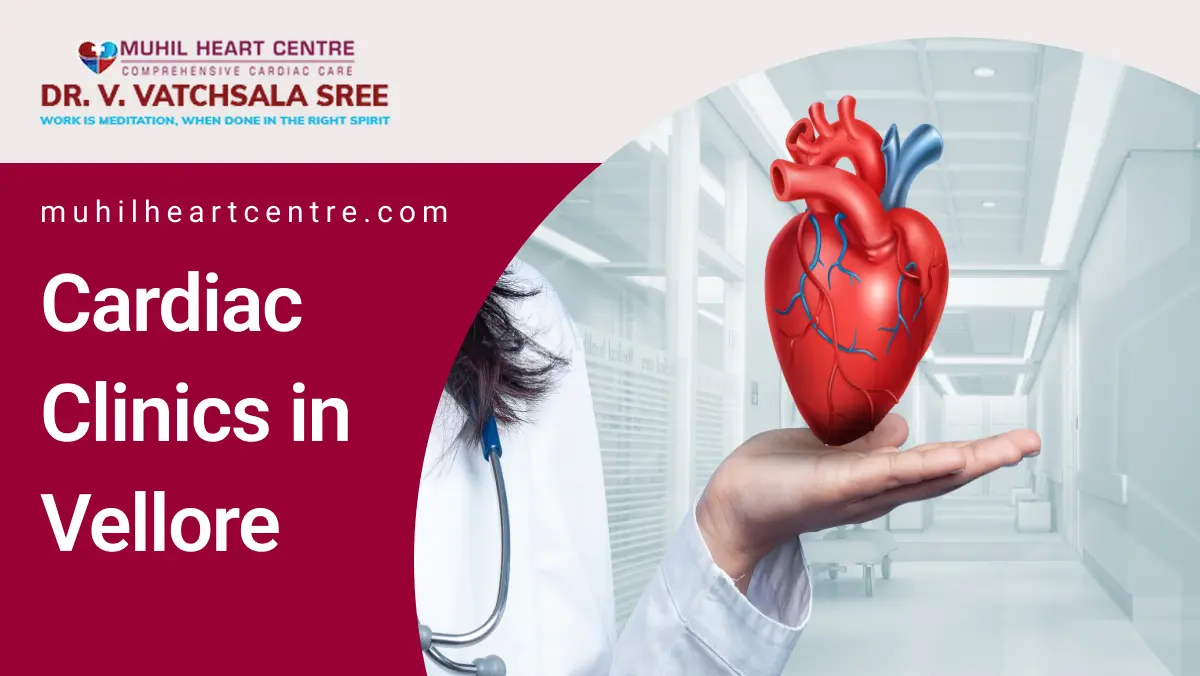Heart disease is a leading cause of mortality worldwide, and certain health conditions such as diabetes, hypertension (high blood pressure), and high cholesterol significantly contribute to its development. In this blog post, we will explore the interplay between diabetes, hypertension, cholesterol, and heart disease. Understanding the link between these conditions at the cardiac clinics in Vellore is essential for prevention, early detection, and effective management.
By addressing these interconnected factors and adopting a comprehensive heart disease treatment in Vellore, individuals can reduce the risk of heart disease and promote overall well-being.
Who is Cardiologist?
A cardiologist is a medical doctor with specialized training in diagnosing, treating, and preventing diseases and conditions related to the heart and the circulatory system. They play a critical role in managing heart diseases like coronary artery disease, heart failure, arrhythmias, and providing care to patients to improve their heart health and overall well-being.
Diabetes and Heart Disease
Diabetes and heart disease share a complex relationship. People with diabetes require heart disease treatment in Vellore as they are more likely to develop heart disease due to several factors. Firstly, high blood glucose levels in diabetes can damage blood vessels over time, leading to atherosclerosis (narrowing of the arteries) and increasing the risk of heart attacks and strokes.

Secondly, individuals with diabetes often approach the cardiac clinics in Vellore as they have additional risk factors such as obesity, high blood pressure, and abnormal cholesterol levels, which further contribute to the development of heart disease. Lastly, diabetes can impair the function of the heart muscle itself, leading to conditions such as diabetic cardiomyopathy.
Hypertension (High Blood Pressure) and Heart Disease
Heart disease poses a significant risk, with hypertension being a notable contributing factor. Prolonged high blood pressure can damage the arteries, making them less flexible and more prone to atherosclerosis. It also increases the workload on the heart, leading to an enlarged heart, weakened heart muscle, and an increased risk of heart failure.
Additionally, hypertension can contribute to the formation of blood clots, further obstructing blood flow and increasing the risk of heart attacks or strokes. This requires medical attention at the cardiac clinics in Vellore.
Check out Depression treatment in Vellore to overcome from the Depression
Cholesterol and Heart Disease
Elevated cholesterol levels, particularly high levels of low-density lipoprotein (LDL) cholesterol (“bad” cholesterol), are strongly associated with an increased risk of heart disease. LDL cholesterol can accumulate in the walls of arteries, forming plaques that narrow the arterial passages and impede blood flow.
If a plaque ruptures, it can trigger the formation of blood clots, potentially leading to a heart attack or stroke. It should be immediately treated by the experts at the cardiac clinics in Vellore. Conversely, high levels of high-density lipoprotein (HDL) cholesterol (“good” cholesterol) are associated with a lower risk of heart disease, as HDL helps remove excess cholesterol from the bloodstream.
The Triad: Diabetes, Hypertension, and Cholesterol
The combination of diabetes, hypertension, and high cholesterol significantly amplifies the risk of heart disease. These conditions often coexist and contribute to a synergistic effect on cardiovascular health. Diabetes can exacerbate hypertension and cholesterol abnormalities, making it even more crucial to manage all three conditions effectively while undergoing heart disease treatment in Vellore.
Individuals with this triad should work closely with healthcare professionals at cardiac clinics in Vellore to develop a comprehensive treatment plan that includes lifestyle modifications (such as a heart-healthy diet, regular exercise, and weight management), medications (such as antihypertensives, cholesterol-lowering drugs, and glucose-lowering agents), and regular monitoring of blood pressure, cholesterol levels, and blood glucose.
How to Choose Cardiac Clinics in Vellore
Choosing the best cardiac clinic is a crucial decision for your cardiovascular health. Consider the following factors to guide your decision-making process
Board Certification and Credentials
Ensure that the cardiologists and healthcare professionals at the clinic are board-certified and have the necessary credentials. Certification indicates that they have met specific standards in the field.
Specialization and Expertise
Consider the clinic’s specialization and expertise in different areas of cardiology, such as interventional cardiology, electrophysiology, heart failure, or preventive cardiology. Choose a clinic that aligns with your specific cardiovascular needs.
Experience and Reputation
Research the clinic’s reputation and the experience of the healthcare providers. Read patient reviews, testimonials, or seek recommendations from friends, family, or your primary care physician.
Technology and Facilities
Assess the clinic’s technological capabilities and the quality of its facilities. State-of-the-art equipment and facilities contribute to accurate diagnostics and effective treatment.
Accreditations
Check if the clinic has received accreditations from reputable healthcare organizations or institutions. Accreditation ensures that the clinic meets high standards of patient care and safety.
Conclusion
Understanding the link between diabetes, hypertension, cholesterol, and heart disease is essential for maintaining optimal cardiovascular health. Individuals with diabetes, hypertension, or high cholesterol should be aware of the increased risk of heart disease and take proactive steps to manage these conditions effectively. By addressing these interconnected factors and promoting overall well-being, individuals who have approached the experts at one of the best cardiac clinics in Vellore like Muhil Heart Centre can significantly reduce the risk of heart disease and enjoy a healthier life.
Read also Cardiac Care During Pregnancy in Vellore.

